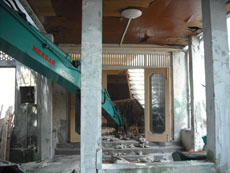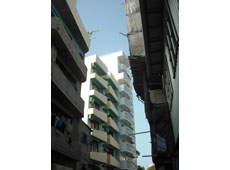A bill on political parties presented to the parliament by the government yesterday triggered debate over the merits of the political system in the Maldives.
Maldivian Democratic Party (MDP) MP Ahmed Abdulla presented the bill to the parliament on behalf of the government, with the stated aim of strengthen the democracy of the country and to provide a peaceful way to participate in political activities.
The bill contained aspects such as what a political party should and should not do and how members should be disciplined, how political parties can legally earn money and how a person can resign and join another political party.
Dhivehi Rayyithunge Party (DRP) MP Abdulla Mausoom said that the country was “now in chaos because of the invention of political parties.”
”The peacefulness and unity among us has changed,’ ‘Mausoom said. ”The question in our hearts is: ‘Do we really need political parties?’.”
He proposed to amend the article 18 of the bill in the committee stage.
Independent MP Ahmed Amir said that the question on his mind was why MPs were not included in the list of people “who cannot be a member of any political party.”
Amir claimed that the majority of the population “does not support political parties in the country.”
“More than 50 per-cent of the population of above the age of 18 is not involved in any political party,” he said.
DRP MP Rozaina Adam said that now it was too late to make bills governing the conduct of political parties.
Rozaina proposed to add a article whereby the Elections Commission (EC) was obligated to provide places for political parties to hold their meetings.
”When the opposition tries to hold a meeting we don’t usually get a place,” she claimed. ”So I suggest we design the bill in a way that political parties would have to get permission from the EC to hold meetings and they provides a place.”
She said that she had noticed that the screening of private phone calls was now very popular.
”I see they regularly screen our private phone calls – I wonder if this would not be spying, a power that the government has,” she said. ”I wish that when the bill gets passed there would be a solution for these types of things.”
MDP Chairperson and MP Mariya Ahmed Didi said she recalled a time when political parties were not registered, on the assumption that the invention of a political party system would disperse society.
”But people sought in their own ways to express their opinions and raised their voice for a political party system,” she said, ”and after listening to their voices parliament made a law permitting parties.”
She said that independent MPs also work together as a political party.
”They also holds meetings among them and speak one word,” she said.
DRP MP Ahmed Mohamed said he was against party system “now and then.”
”Forming a political party in a such small country is like playing with fire,” Mohamed said.
”I say, we hold a vote to see if people like or dislike having political parties,” he said. ”Like other MPs have said, the majority of the population does not belong to any political party.”
”In a family, Mum, Dad and their kids are in different parties, so the unity among them gets ruined,” he said.

